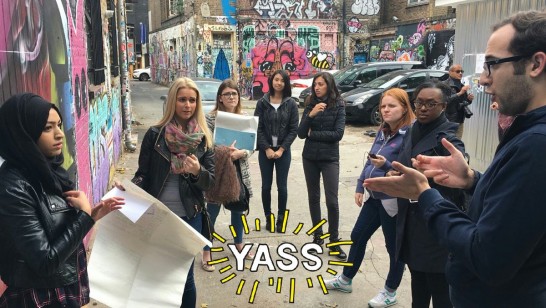We have helped create the UK’s first ever visual British Sign Language (BSL) money dictionary!
The glossary is a small taste of the new Money Mechanics programme for young people with sensory impairments.
This groundbreaking financial capability programme has been developed in partnership with The Royal Association for Deaf people (RAD).
Containing specific financial related terms, with definitions, it helps 14-25 year olds or parents who want to teach their children about personal finance, cut through the language barriers associated with money management.
Sue Mountford, Director of Services at the Royal Association for Deaf people explains:
“Not all money related terms are in British Sign Language (BSL), or have attached definitions. In BSL there isn’t a specific sign for each word in the English dictionary. Sometimes we have to borrow signs from other regions/countries. Whilst many of these words are used every day in the finance sector – in most cases we have to visually define the words.
This is a perfect example to how we are breaking down the barriers to young people managing their money.”

The Money Mechanics project will see over a thousand young people learn how to budget, bank and borrow safely, in their first languages. Young participants will also get to understand the costs of university and how to run their own enterprise. It is envisaged that other youth organisations could be trained to deliver the programmes.
The initiative is funded by players of People’s Postcode Lottery.
Featured terms:
1. University – University is a place of higher education.
2. Loan agreement – A loan agreement is made between you and a company where you borrow money.
3. Student loan – A student loan is money you borrow from the government.
4. A bursary – A bursary is a type of loan that you don’t have to pay back.
5. Gross pay – Gross pay is all of your wages, before you’re taxed.
6. Net pay – Net pay is your wages you receive after tax, which you keep in your pockets.
7. Interest (bad) – Interest is money that you may have borrowed from the bank, and there’s a % you need to pay back.
8. Interest. (Good) – Interest is money that you may have put away in your savings account and you get a little bit on top.
9. Credit card – A credit card is money that you borrow for an instant payment.
10. Debit card – A debit card is card that you pay for things with.
11. Tax free threshold – Tax free threshold means that if you earn above £11,500 then it means unfortunately you need to pay tax. However if your under that amount you don’t have to pay tax.
12. A mortgage – A mortgage is a type of loan to buy a property.
Guy Rigden, CEO of MyBnk said:
“Money Mechanics is already proving how we will have a lifetime impact on the everyday interactions of vulnerable young people, be it budgeting, understanding bills, prioritising debts or earning money, as well as on their aspirations for the future, for example considering university, starting their own business, or moving into their own home. It’s about making finance accessible for all”.



